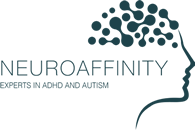In 2023, the BBC aired a groundbreaking episode of Panorama titled Private ADHD Clinics Exposed, shedding light on the practices of some private clinics offering ADHD diagnoses in the UK. The programme raised significant concerns about the reliability and ethics of these assessments, sparking widespread discussion among healthcare professionals, patients, and advocacy groups. Following this investigation, the ADHD Foundation released a detailed response, emphasizing the importance of improving regulatory frameworks and addressing systemic issues contributing to the rise of private clinics. In this article, we’ll explore the key findings of the Panorama programme, the ADHD Foundation’s response, and what this means for individuals seeking ADHD diagnoses.
What Did the Panorama Programme Uncover?
The Panorama investigation focused on several private ADHD clinics across the UK. Key findings included:
- Inconsistent Diagnoses: Undercover reporters demonstrated that the same individual could receive conflicting diagnoses from different clinics, raising questions about the rigor of the assessments.
- Profit-Driven Models: Some clinics appeared to prioritize profit over patient care, recommending expensive treatment plans without sufficient follow-up.
- Lack of Regulation: The programme highlighted the absence of uniform regulation for private ADHD clinics, leading to variations in assessment quality and practices.
- Over-Reliance on Questionnaires: Clinics often relied heavily on self-reported symptoms without corroborating evidence from family members or other sources, a practice inconsistent with recommended guidelines.
The ADHD Foundation’s Response
In its response to the Panorama programme, the ADHD Foundation acknowledged the legitimate concerns raised but also highlighted systemic issues contributing to the situation. Key points included:
- Long NHS Waiting Lists: Over 1.5 million adults and children in the UK are waiting for ADHD assessments. Many turn to private clinics out of necessity due to delays in the public healthcare system.
- Importance of Regulation: The ADHD Foundation called for improved oversight and regulation of private ADHD clinics to ensure ethical practices and consistency.
- Avoiding Stigma: The organization expressed concern that the programme’s tone could stigmatize individuals seeking private diagnoses, potentially discouraging people from accessing the support they need.
The ADHD Foundation emphasized the need to address gaps in NHS services while ensuring that private clinics maintain high standards of care.
Source: ADHD Foundation’s Response to Panorama
How Has the ADHD Community Reacted?
The Panorama episode has sparked a mix of frustration, concern, and advocacy within the ADHD community. Key reactions include:
- Calls for Reform: Advocacy groups have urged the government to address the root causes of the reliance on private clinics, particularly by increasing funding for NHS ADHD services.
- Increased Scrutiny of Private Clinics: Patients and professionals alike are calling for greater accountability and transparency in the private sector.
- Fear of Stigma: There is concern that the programme may unintentionally discourage people from seeking help, perpetuating misconceptions about ADHD and the need for professional diagnoses.
What Does a Thorough ADHD Assessment Look Like?
A reputable ADHD assessment should be evidence-based, comprehensive, and aligned with national guidelines. High-quality evaluations typically include:
- In-Depth Interviews: Exploring developmental, medical, and mental health histories to understand symptoms in context.
- Multi-Source Evidence: Gathering input from family members, teachers, or colleagues to corroborate self-reported symptoms.
- Validated Diagnostic Tools: Using standardized tools and symptom rating scales.
- Differential Diagnosis: Ruling out other conditions, such as anxiety or sleep disorders, that might mimic ADHD symptoms.
- Follow-Up Care: Providing ongoing support, such as treatment plans, therapy, or coaching.
Implications for Those Seeking ADHD Assessments
The Panorama investigation and subsequent response by the ADHD Foundation have highlighted key steps for individuals seeking ADHD assessments:
- Research Carefully: Look for clinics that outline their processes transparently and adhere to professional guidelines.
- Ask Questions: Before booking, ensure the clinic offers comprehensive assessments that include input from multiple sources and follow-up care.
- Explore NHS Options: While waiting lists are long, seeking an NHS diagnosis may provide peace of mind regarding assessment quality.
How Neuroaffinity Maintains High Standards
At Neuroaffinity, we are committed to ethical, evidence-based ADHD assessments and treatment plans. Here’s how we stand apart:
- Qualified Professionals: All assessments are conducted by licensed clinicians with expertise in ADHD.
- Comprehensive Process: We gather multi-source evidence, use validated diagnostic tools, and ensure a holistic evaluation.
- Patient-Centered Care: Our assessments are tailored to the individual, with personalized follow-up plans that include medication management, therapy, and coaching.
- Ongoing Support: We provide regular follow-ups to monitor progress and adjust treatment as needed.
The Path Forward: Building Trust in ADHD Care
The Panorama investigation and the ADHD Foundation’s response have underscored the need for systemic reform and greater oversight of private ADHD clinics. While challenges remain, it’s crucial for patients to know that ethical, high-quality care is available.
At Neuroaffinity, we are committed to restoring trust in ADHD care by prioritizing professionalism, transparency, and patient well-being. Contact us today to learn more about our ADHD assessment and treatment services. Together, we can help you or your loved one navigate the path to better mental health.

Talhah Malik
Dr Talhah Malik is a Consultant Forensic Psychiatrist specialising in ADHD and autism. He leads secure inpatient services, provides medico-legal assessments, and is passionate about evidence-based, person-centred care.


